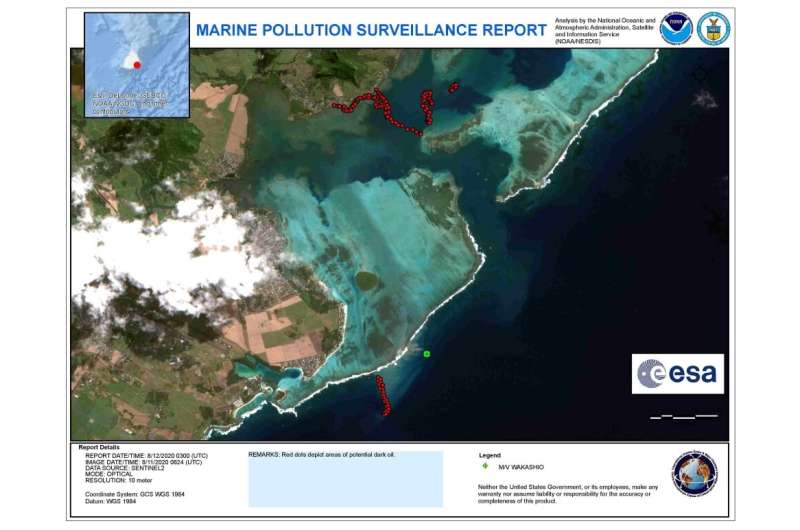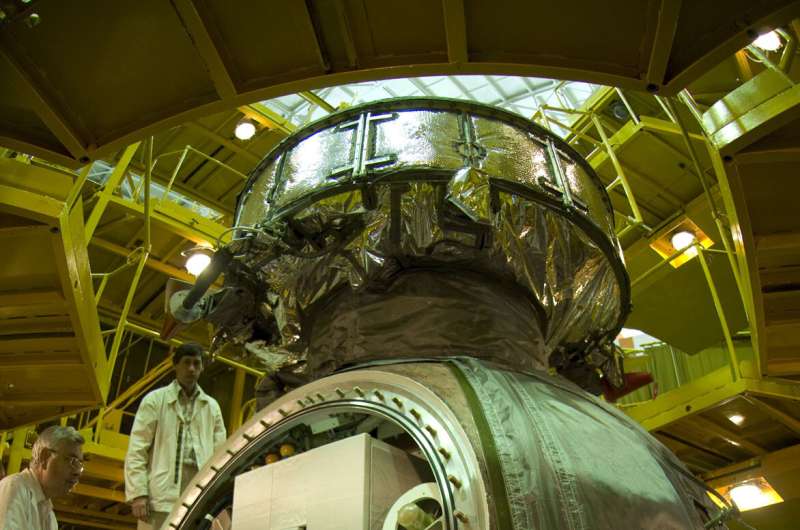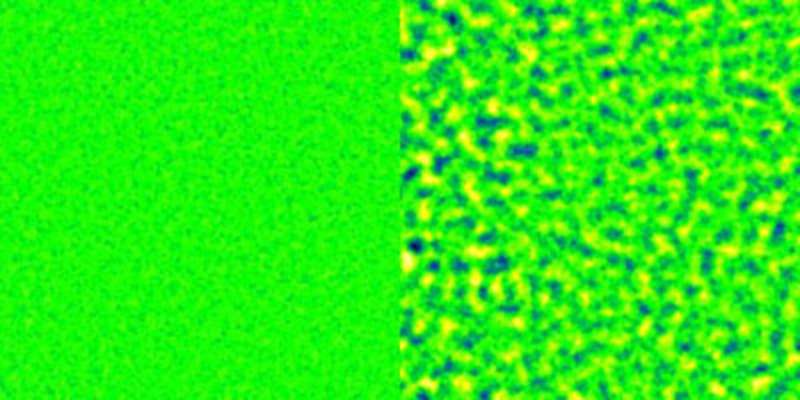This map is based on a Copernicus Sentinel-2 image acquired on 11 August 2020 and provides an analysis of the recent oil spill in Mauritius. In July, an oil carrier ran aground on the coral reef off the coast of Mauritius and leaked oil into the surrounding waters at Point d’Esny, a UNESCO-protected wetland. Credit: Contains modified Copernicus Sentinel data (2020)/map produced by NOAA
Most liquids are in suspension. Particles too small to see by naked eye swirl everywhere as gravity and temperature changes move them around. Keeping liquids from separating can be a hassle for the foods we buy in the supermarket, but also for the pharmaceutical industry seeking to extend the shelf life of medicine as long as possible.
Separating liquid mixtures can also be used to get rid of pollutants, or to collect nutrients, like scooping a layer of cream off the top of milk. Understanding the nature of the mixing and de-mixing process in complex fluids is important for practical applications on Earth, as well as processing fluids in the absence of gravity as humankind explores the solar system.
To understand the process in more detail, ESA has started the Technologies for Non-Equilibrium Systems (TechNES) project in collaboration with Germany-based NanoTemper Technologies.
An international research team, coordinated by the University of Milan in Italy, will work with NanoTemper Technologies to investigate the behavior of complex fluids in space, with a focus on developing new technologies for pharmaceutical and biomedical fields.
The project builds on over two decades of experience studying fluids on ESA's gravity research platforms such as the Foton M3 capsule and the International Space Station. Research groups from the University of Milan, University of Pau and the Adour Region in France, the University of Bayreuth, Germany, and the Complutense University of Madrid, Spain are developing new experiments as part of TechNES to be run on the International Space Station.
Preparation of the Foton-M3 spacecraft at Baikonur Cosmodrome, Kazakhstan. Credit: ESA - S.Corvaja
Suspended liquids
The liquids of interest are suspensions of colloids, polymer solutions and protein solutions. These are liquids with minute particles suspended in them. Many liquids can be considered colloids, from milk to oil. Never at rest, the components move continuously, influenced by movement such as shaking and mixing, gravity and natural movement caused by temperature fluctuations.
The experiments will investigate how complex natural and industrially-made fluids mix together in zero gravity, to develop diagnostic techniques for the study of liquids that are not in equilibrium. Understanding these complex fluids is beneficial for more than just the pharmaceutical industry, as they are found in the transport of biological cells, in our atmosphere and oceans as well as in industrial processing of food and chemicals.
False colour images from the Single fluid study, showing temperature fluctuations in a simple, single-component organic fluid on Earth (left) and aboard Foton-M3 (right). The fluctuations in normal gravity on Earth are barely visible. Credit: ESA
Credit: ESA - European Space Agency
"Following last year's 20 year anniversary of continuous human habitation on the International Space Station, this project is a great example of the international collaboration and long-term studies that humankind's weightless research laboratory allows," says Marco Braibanti from ESA's human spaceflight science team.
"We have learnt so much studying fluids in Europe's Columbus laboratory and the fluid science facility and now commercial companies are showing interest to bring benefits to all on Earth."
NanoTemper Technologies specializes in an instrument to study protein solutions, and is collaborating in the project to develop optical diagnostic techniques suitable for the development of reliable protein-based drugs.
Drugs based on proteins such as antibodies generally have higher specificity and are more efficient in curing disease with fewer side effects than conventional chemically-based drugs.
"Our collaboration with NanoTemper Technologies will allow us to transfer the advanced diagnostic tools developed for our fundamental research in space to applications of relevance in the healthcare industrial sector, with benefits for the society," says Alberto Vailati from the University of Milan, coordinator of the TechNES international team.
Provided by European Space Agency

























